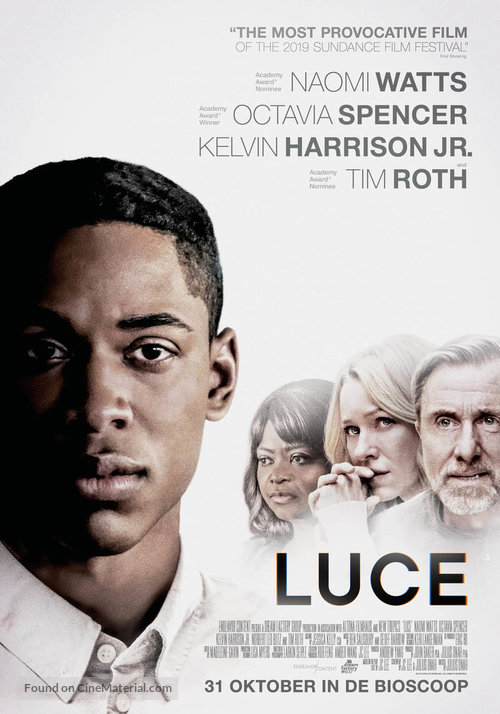Luce—A Beam of Light?

The title character, Luce (Kelvin Harrison Jr.) is an all-star athlete and model straight-A student who is expected to achieve greatness in college. Luce’s liberal adoptive parents—physician Amy (Naomi Watts) and financier Peter (Tim Roth) adopted Luce when he was a little boy in Eritrea, a boy-soldier who experienced unimaginable horror.
A volatile and incendiary essay he has written for an English teacher, Harriet Wilson (Octavia Spencer), is brought to the attention of Luce’s parents. The essay inflames the liberal-minded community and most of all, his English teacher.
Luce’s parents do not know who to believe, –his teacher and school administrators or their son–although their intuition and gut-reaction is to believe their brilliant, beloved Luce. Other parents slowly face the same dilemma –who do you believe in the face of unconditional love? Luce’s personal story unfolds as an attempt to define what is the truth to the listener–the one that is acceptable and therefore believed, or the one that shatters values you deeply hold.
A sense of sustained menace highlights the central theme of Luce: Do we really know who Luce is and how deeply his traumatic childhood experiences have affected him?
Luce is a gut-wrenching story of love of child versus love of spouse. This film is also provocative in terms of Luce’s achievements validating his liberal parents’ convictions about social justice and racial equality, about transforming the human soul. There are no easy answers.
Race and white privilege are examined under a psychological microscope. Sharp-edged and gimlet-eyed, this is a difficult film that tries to say something nuanced about racism, making for uncomfortable viewing. Luce is boldly ambitious in addressing so many questions in one film: Who is “anointed” by others to succeed? The myth of the American dream and succeeding all on your own, especially in the glowing light of suburbia (Arlington, Virginia), is painfully dissected.
Luce closes with a chilling and morally ambiguous ending. The creation of your own ending may depend upon your ethnic identity and how much it has influenced who you are now. No one person represents an entire demographic and Luce shouts this to the audience loud and clear.
“You never really know what is going on with people.” (Luce)
Note: Now available on Netflix.
